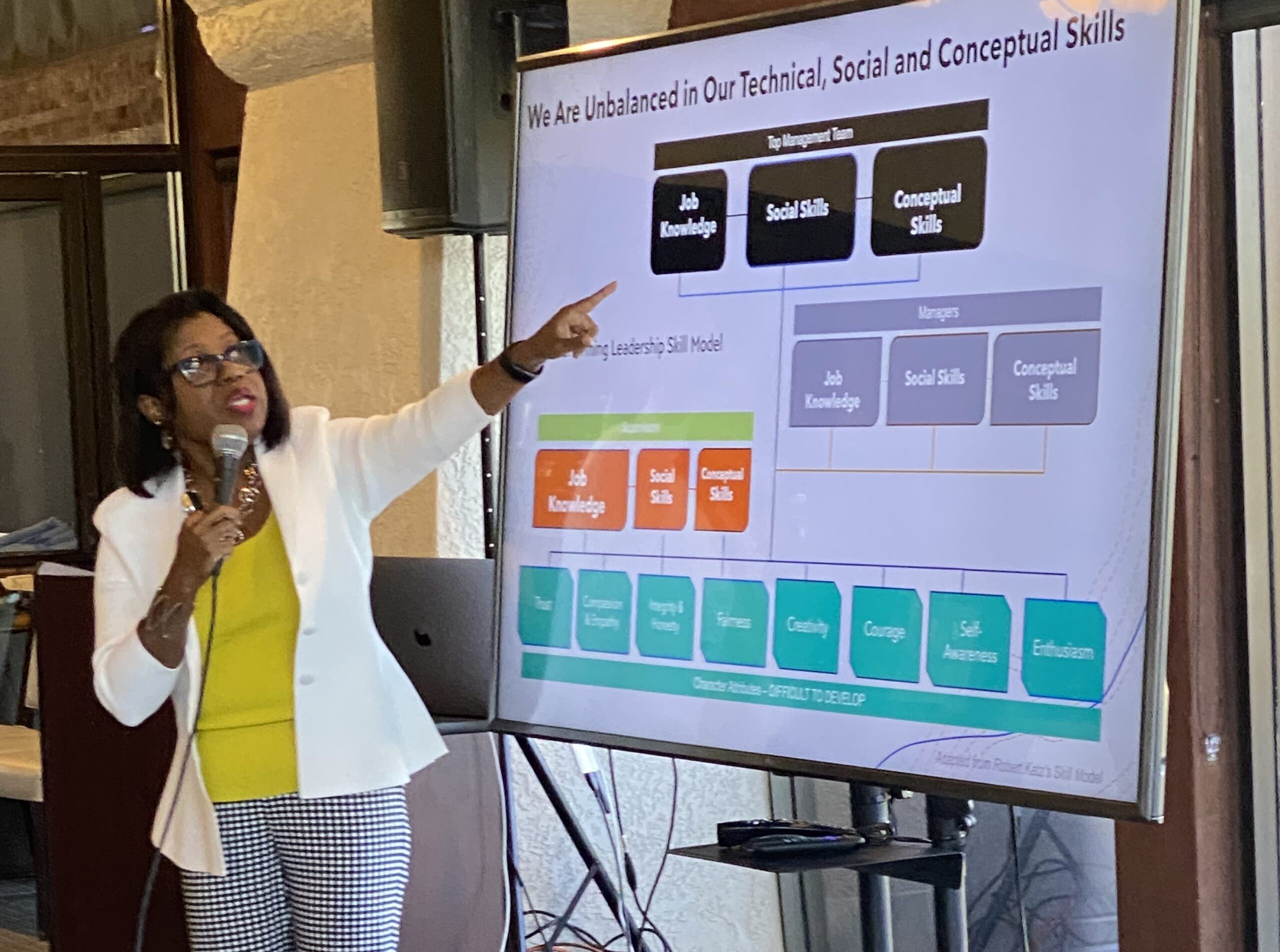“Everything you practice, whether it be on the court or in the gym, it’s all helping you take the next step to success.” – Adrianna Proulx
This fall, I’ll be back in school to earn a Doctorate in Industrial/Organizational Psychology. My primary reason for pursuing a Ph.D. is because of executives like you. You consistently challenge my thinking in new and exciting ways, and I’m honored to share my insights and experiences to help you advance your goals. And so, I am preparing to think on a new level.
To “think on the level of your position” means you are effectively demonstrating the ability to plan, respond, and behave as is expected of someone at your level. Most of us work in a mental framework where we constantly size up ourselves and others in leadership positions, and our ideas of what it means to think and behave as executives are, in part, based on actual outcomes and, in part, on our own biases. Which do you believe emerges first in times of crises and conflict?
Executives who don’t practice next-level skills are products of the 6th man (or woman) mindset. (Here I go with another attempt at a sports analogy but follow me here.) A basketball player who sits on the bench is more skilled than the crowd but not good enough for long play, so they are awarded a seat on the floor, which looks good, but they don’t get enough playing time to demonstrate real talent. Who wants that?
You have a choice in the type of leadership legacy you want to establish. You can either be effectively productive or effectively destructive. Effectively productive executives slow down their thinking and emotional reactions and choose how they want to show up. Effectively destructive executives do not. It’s the difference between a 6th man (or woman) and a starter.
So Pam, how do I become a more effectively productive executive? It’s simple – take control of your brand. And, here’s how:
- Drink Water. Raisin-brain is dangerous. If you want to reduce stress, anxiety, and be prepared to respond and not react, then drinking water will help you rid your brain of toxins and dead cells by balancing the chemical processes in the brain. Rule of thumb: consuming 1/2 your body weight in water will ensure you are an executive capable of thinking with clarity.
- Challenge Yourself. Develop to your full potential. Studies show that simply asking yourself questions and challenging your own deeply held assumptions and beliefs will lead to innovation, creativity, improved reasoning, and communication skills.
- Read More. Feed your brain. Do more than watch television and listen to podcasts. Read materials that answer the questions you’re asking yourself and that others are asking of and around you. Audiobooks today allow you to bookmark as you read, reinforcing the learning experience and improving retention significantly.
- Reflect. A leader once said to me, “Pam, did you realize you speak and write from a negative tense?” HUH? I had to learn to listen to myself and reflect on the examples he’d given me in order to know what was happening and how to get better. Reflection also helps us to gauge progress.
- Practice. Tired of being a 6th man (or woman) on the bench? If you desire to be the go-to starter (or executive) you were hired to be, then you must practice new ways of being. Exercise new skills, release bad habits, surround yourself with next-level people and, join conversations that reinforce who you are becoming, not who you were.
- Persevere. I’ve not learned to speak Spanish fluently because I haven’t practiced or persevered. Speaking fluent Spanish moved down on the importance scale, and finishing my Ph.D. moved up in its place. What is important to your credibility, capability, and confidence as an executive? Prioritize and practice with perseverance.
- Release Others. As you improve your cognitive processes, help others do the same. Don’t micro-manage. Allow them to solve their own problems, coaching them along the way. In the end, you’ll build an effectively productive team.
Practice is required to become an effective executive and not a 6th man (or woman) alternate. What is the one area of your brand that might be limiting your effectiveness as a next-level executive producer?
You are now on the court, are you ready to take the last shot?
If you are ready to be a next-level leader and develop your executive brand, let’s talk.



